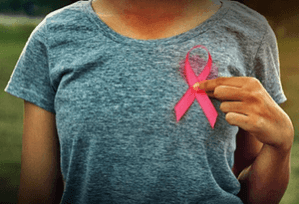
Researchers have identified nearly 200 potential carcinogens linked to breast cancer in everyday food packaging materials. These materials include commonly used items such as plastics, paper, and cardboard. The study, which was published in the esteemed 'Frontiers in Toxicology' journal, has underscored the urgent need for stronger preventative measures to reduce the presence of these chemicals in everyday products.
Jane Muncke, Managing Director of the Food Packaging Forum and co-author of the study, emphasized the significance of the findings. This study is important because it shows that there is a huge opportunity for prevention of human exposure to breast cancer-causing chemicals, she said. Muncke further stressed the need for more attention to be paid to the potential for cancer prevention by reducing hazardous chemicals in daily life.
Breast cancer is a global health concern, ranking as the second most common cancer worldwide and the most common cancer among women. According to the World Health Organization (WHO), in 2022 alone, 2.3 million women were diagnosed with breast cancer, and 670,000 succumbed to the disease globally. These alarming statistics underscore the urgency of addressing the issue of carcinogens in everyday products.
The research team conducted a comprehensive comparison of a recently published list of potential breast carcinogens. Their findings were startling: 189 potential breast carcinogens have been detected in food contact materials (FCMs), including 143 in plastics and 89 in paper or board. The team limited their study to the most recently available studies from 2020 to 2022.

The researchers also found evidence of exposure to 76 suspected mammary carcinogens from FCMs purchased globally, with 80% of these originating from plastics. This finding indicates a continued exposure of the global population to these chemicals under realistic use conditions.
The food contact materials used in the study were purchased within the last few years from markets in highly regulated regions, including the European Union and the United States. Despite the stringent regulations in these countries intended to limit carcinogenic substances in FCMs, the study highlights significant gaps in the current regulatory frameworks.
The researchers concluded, Our findings imply that chronic exposure of the entire population to suspected mammary carcinogens from FCMs is the norm and highlights an important, but currently underappreciated, opportunity for prevention.
This study echoes the findings of previous research that have pointed to the potential dangers of chemicals in food packaging. For instance, a 2014 study published in the journal 'Environmental Health Perspectives' found that most plastic products release estrogenic chemicals, which have been linked to breast cancer. Similarly, a 2016 study in the 'Journal of Cleaner Production' highlighted the potential health risks of chemicals used in paper and board food packaging.
The current study, however, is unique in its comprehensive approach and its focus on breast carcinogens specifically. It serves as a stark reminder of the potential dangers lurking in everyday items and the urgent need for more robust regulations and preventative measures.









